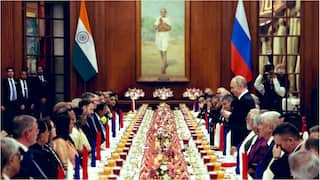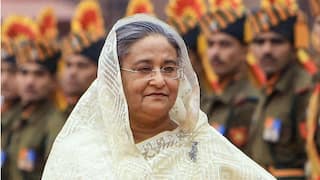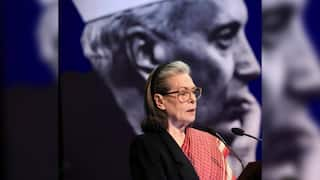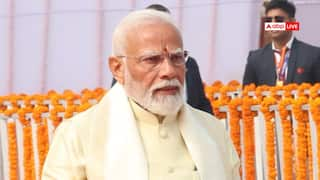RBI Monetary Policy: MPC Keeps Repo Rate Steady At 4%, Stance Remains Accommodative
RBI Monetary Policy: MSF rate and bank rate remain unchanged at 4.25 per cent while reverse repo rate also kept unchanged at 3.35 per cent.

New Delhi: The Reserve Bank of India (RBI) maintained its status quo on key rates in its bi-monthly policy statement announced on Wednesday. The central bank left the key interest rates unchanged for the ninth consecutive time. MPC kept the policy repo rate unchanged at 4 per cent and maintained accomodative stance.
The six-member Monetary Policy Committee (MPC) headed by governor Shaktikanta Das announced the monetary policy amid economic uncertainties raised by the new strain of the Omicron variant.
MSF rate and bank rate remain unchanged at 4.25 percent. The reverse repo rate was also kept unchanged at 3.35 percent.
GDP has expanded by 13.7 percent in the first half of 2021-22 in alignment without projection, said Das. Inflation is also broadly aligned with the target of 4 percent barring short-lived spikes.
Repo rate is the rate at which the RBI lends money to commercial banks; while reverse repo rate is the rate at which the Reserve Bank borrows from banks.
The central bank's projection for real GDP growth is retained at 9.5 percent in 2021-22, consisting of 6.6 percent in Q3, & 6 percent in Q4. Real GDP growth is projected at 17.2 percent for Q1 of 2022-23 and at 7.8 percent for Q2 of 2022-23.
"Recent reductions in excise duty & state VAT on petrol and diesel should support consumption demand by increasing purchasing power. Govt consumption is also picking up from August, providing support to aggregate demand," said Das.
In the last policy review in October, the central bank had kept the key lending rates unchanged for eight consecutive times and maintained the monetary stance as ‘accommodative’.
An accommodative stance refers to the rate-setting panel’s willingness to either cut rates or remain on hold. Repo is the rate at which the central bank lends short-term funds to banks.
Covid-19 new strain Omicron, first identified by South African scientists, once again raises concerns for India's economy. The World Health Organisation (WHO) has officially named the new variant B.1.1.529.
As per the WHO, the first known confirmed case of the new variant was from a sample collected on 9 November this year. Omicron cases have been spreading fast in India. More than 20 cases have been reported in the last week.







































